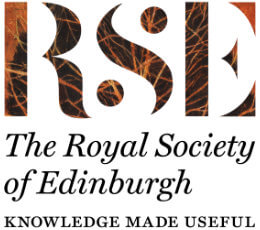What is Singing for Dementia or Dementia Inclusive Singing?
Dementia is a progressive condition that is currently affecting around 90,000 people living in Scotland. Symptoms include memory loss, difficulties in reasoning and communicating, personality changes and a reduction in a person’s ability to carry out everyday activities, which means they rely on others for their care. Research has shown that people living with dementia benefit from participating in group singing, including having positive impacts on wellbeing, mood, and elements of cognitive function. Carers also benefit from participating in the same group singing sessions. Indeed, the Musical Memories choir in Hamilton encouraging carers (family and professional) to come along and sing as part of the group for this very reason.
There are already several singing groups and a Dementia Inclusive Choir Network, run by Luminate in partnership with Scottish Care and many are working to connect and get people singing together (no matter if they are living at home or in residential care). The Dementia Inclusive Singing Network also run training sessions and provide songs to sing at home.
Want to find a Dementia Inclusive Singing group in your area?
![]() If you would like to find a dementia inclusive singing group in your area, please visit see the Scotland’s Singing for Health Map. Dementia-inclusive singing groups are marked with a purple and white heart.
If you would like to find a dementia inclusive singing group in your area, please visit see the Scotland’s Singing for Health Map. Dementia-inclusive singing groups are marked with a purple and white heart.
What does the research say and how can I access it?
Research carried out over the past decade has established singing as an important social and physical health intervention for individuals with dementia. There are several open-access studies available where you can learn more about Dementia Inclusive Singing. Here is a selection of studies, evaluations, and literature reviews:
Cho, H. K. (2018). The effects of music therapy-singing group on quality of life and affect of persons with dementia: A randomized controlled trial. Frontiers in Medicine, 5, https://doi.org/10.3389/fmed.2018.00279
Lee, S., O’Neill, D. & Moss, H. (2021) Dementia-inclusive group-singing online during COVID-19: A qualitative exploration, Nordic Journal of Music Therapy, https://doi.org/10.1080/08098131.2021.1963315
There are also Restricted-access research papers where you are able to view the abstract and key information about the study or literature review:
Camic, P. M., Williams, C. M., & Meeten, F. (2011). Does a ‘singing together group’ improve the quality of life of people with a dementia and their carers? A pilot evaluation study. Dementia, 12(2), 157–176.
Clark, I. N., Tamplin, J. D., & Baker, F. A. (2018). Community-dwelling people living with dementia and their family caregivers experience enhanced relationships and feelings of well-being following therapeutic group-singing: A qualitative thematic analysis. Frontiers in Psychology, 9, 1332.
Dowson, B., Schneider, J. (2021). Online singing groups for people with dementia: scoping review. Public Health, 194, 196-201.
Harris, P. B. and Caporella, C. A. (2019) Making a university community more dementia friendly through participation in an intergenerational choir, Dementia, 18(7–8), 2556–2575
Lee, S., O’Neill, D., & Moss, H. (2020). Promoting well-being among people with early-stage dementia and their family carers through community-based group-singing: A phenomenological study. Arts & Health, 1–17.
McDermott, O., Crellin, N., Ridder, H. M., & Orrell, M. (2013). Music therapy in dementia: A narrative synthesis systematic review. International Journal of Geriatric Psychiatry, 28(8), 781–794.
Mittelman, M. S., & Papayannopoulou, P. M. (2018). The unforgettables: A chorus for people with dementia with their family members and friends. International Psychogeriatrics, 30(6), 779–789.
Osman, S. E., Tischler, V., & Schneider, J. (2016). ‘Singing for the Brain’: A qualitative study exploring the health and well-being benefits of singing for people living with dementia and their carers. Dementia, 15(6), 1326–1339.
Unadkat, S., Camic, P. M., & Vella-Burrows, T. (2017). Understanding the experience of group-singing for couples where one partner has a diagnosis of dementia. The Gerontologist, 57(3), 469–478.
Brianna Robertson-Kirkland



